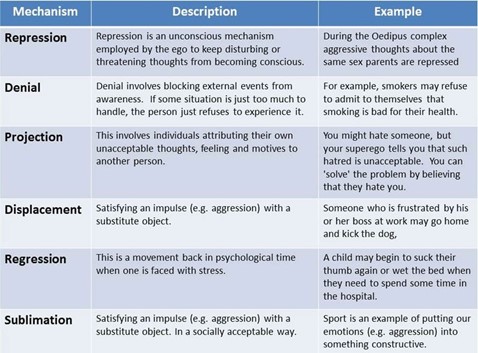A registered nurse is admitting a client to an alcohol abuse program. The client states, here because of my boss. It was part of my job to go to parties and drink with clients. The client's statement is an example of which of the following defense mechanisms?
Select one:
Compensation
Suppression
Rationalization
Reaction-formation
The Correct Answer is C
Rationalization is a defence mechanism in which a person attempts to justify or explain their behavior or actions in a way that makes them seem more acceptable or reasonable. In this case, the client is using rationalization by attributing their alcohol abuse to their job and the need to drink with clients at parties.
Option a. Compensation is a defense mechanism in which a person attempts to make up for a perceived weakness or deficiency by excelling in another area.
Option b. Suppression is a defense mechanism in which a person consciously chooses to avoid thinking about or dealing with unpleasant thoughts or feelings.
Option d. Reaction-formation is a defense mechanism in which a person behaves in a way that is opposite to their true feelings or desires.

Nursing Test Bank
Naxlex Comprehensive Predictor Exams
Related Questions
Correct Answer is B
Explanation
This statement clearly and accurately conveys the client's complaint of being raped by her date.
Option a uses colloquial language and may not accurately convey the severity and trauma of the situation.
Option c uses vague language that does not clearly state the nature of the incident.
Option d uses subjective language that may not be helpful for accurately documenting the client's complaint.
It's important for healthcare providers to use appropriate language when documenting sensitive situations like sexual assault to ensure clear communication among the healthcare team and accurate documentation for legal and forensic purposes.
Correct Answer is A
Explanation
This response acknowledges the client's interest in complementary therapies and opens up a conversation about the different types available. It also allows the nurse to provide education and information about the potential benefits and risks of complementary therapies and how they may interact with the planned treatment.
Whether you are a student looking to ace your exams or a practicing nurse seeking to enhance your expertise , our nursing education contents will empower you with the confidence and competence to make a difference in the lives of patients and become a respected leader in the healthcare field.
Visit Naxlex, invest in your future and unlock endless possibilities with our unparalleled nursing education contents today
Report Wrong Answer on the Current Question
Do you disagree with the answer? If yes, what is your expected answer? Explain.
Kindly be descriptive with the issue you are facing.
